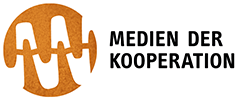Kommende Veranstaltungen
Thu. 07. November 2024 - Fri. 08. November 2024
Tagung: Machine. Body. Space. - The Accomplishment and Entanglement of Human and Non-Human Sensing
Mehr erfahren
Tagung: Machine. Body. Space. – The Accomplishment and Entanglement of Human and Non-Human Sensing


